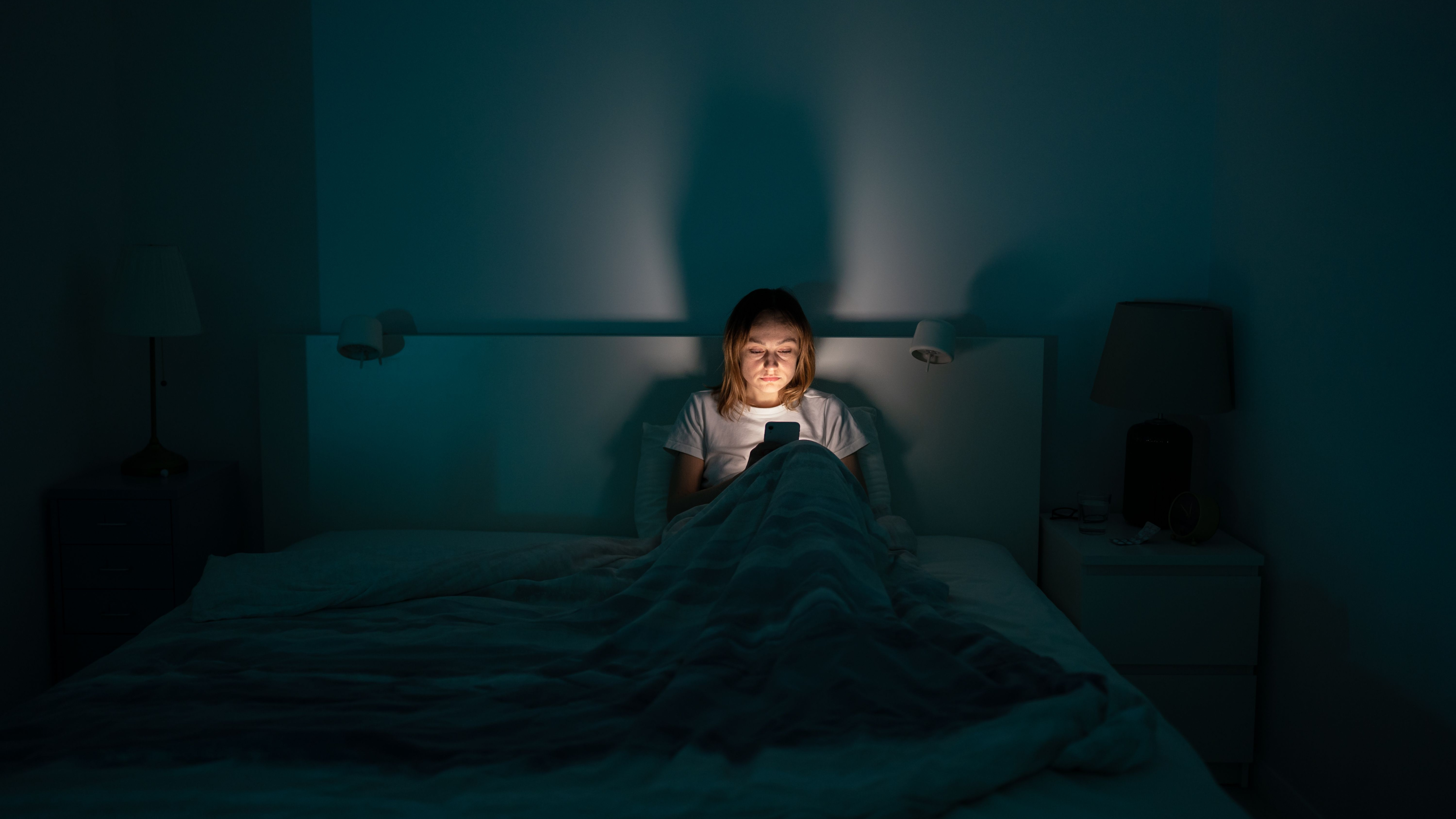I’m trying these 4 things to stop doom scrolling and it’s actually working
It’s time to unplug

Sign up for breaking news, reviews, opinion, top tech deals, and more.
You are now subscribed
Your newsletter sign-up was successful
Social media has become a staple in our lives, helping us keep up with the people we care about and even becoming our main method of communication. At some point every single day, you probably unlock your phone, open an app, and take a minute to catch up on what’s happening in cyberspace.
There are numerous studies out there that go into great detail as to how and why social media can have a negative effect on us. A cross-national survey done in 2022 in the US, UK, Australia, and Norway found that people who used social media to ease loneliness or for entertainment during the pandemic ultimately experienced poorer mental health.
Personally, I’ve noticed how much my phone - and the way I’m using it - has been affecting my mood, so I’ve decided to do something about it! If you’re in the same boat, here’s what to do if you’re sick of social media.
First, how did we get here?
Let’s talk about the attention economy.If we're honest with ourselves for a moment: life online has become a never-ending stream of digital garbage. Mark Manson contextualizes the attention economy in an interesting way: normally people and communities will centre their discussions around what they do not have.
He gives the example of speaking to people who have grown up with restricted or insecure food availability - whether from personal circumstances or based on where they live. Communities that live a food-scarce way of life will always talk about food in some way. What they’re eating this weekend, their favourite food, a new meal they tried. Scarcity drives conversation and interest.
The most prevalent scarcity most of us experience in the modern age is not food or knowledge, but rather attention. The reason we feel like we can’t turn away from social media is the fact that all the apps on your phone are fighting for your attention, and are by design intended to keep you engaged for as long as possible. Tristan Harris, a former Google design ethicist, once said “If you are not paying for the product, you are the product,” and it’s a quote that has stuck in my mind since I first heard it, and often pings around in my brain when I find myself doomscrolling.
Acknowledging the problem
With that in mind, somewhere in the middle of the pandemic, I remember lying under the bedsheets at 3pm on a random Thursday afternoon and checking my screen time, only to see I maintained a 12-hour average all week. And the worst part? 12 hours was great. I was down three hours from last week's average. That is, in hindsight, incredibly sad - I can hardly believe I’m telling you this, but we at TechRadar pride ourselves on honesty - even when it makes us cringe, to be honest.
I spent so long on my phone because, for a long time during the pandemic, it felt like all of my friends and family lived in there. TikTok was the way I - and so many young people - felt connected to my peers while stuck at home. We communicated in memes, and we were all watching the same shows. I’m not sure what would have eaten up my time if not for that distraction (well, probably something a lot more beneficial than TikTok).
When things slowly unravelled back to some kind of normalcy, I brought my bad phone habits with me. At some point, I thought I might have a full-on social media addiction because of how second nature it had become to be on my phone until my hand hurt.
I’ve been using a few really simple and easy tricks to wean myself off my phone, and while they may seem unassuming, they’ve actually helped a lot. I’ve been spending a lot less time with my eyes glued to the digital rectangle in my pocket recently - and this is how I did it.
How you can get started breaking the cycle
Charge your phone AWAY from your bed
Friends, I know I’m starting off strong and perhaps a little mean, and this is probably the absolute last thing you might want to do, but it really does work. If I know I’ve got to physically get out of bed to put my phone on charge for work or school the next day, I’m not going to wait until I’m close to passing out after endlessly doomscrolling into the night.
Once you plug in your phone you can head to bed and start breaking the habit of scrolling till you fall asleep. If you use your phone as your alarm clock, this can also help you actually get out of bed first thing in the morning, instead of clumsily pawing at your phone until it stops beeping and you can steal a bit more shut-eye.
Sign up for breaking news, reviews, opinion, top tech deals, and more.
Instead of first thing in the morning …
The first and most dire way I sabotage my day is by starting my social media binge the minute I open my eyes. You’ve just woken up, and you’re probably a little disorientated, so when you grab your phone and open up TikTok, Twitter, Instagram, or Reddit, the first thing you’re doing is cramming your poor brain with bright lights and an artificial dopamine rush.
The best thing to do if you’re trying to avoid being on your phone so much is to actively replace, not remove, the behaviour. This advice applies not only for when you first wake up, but any time when you’re using your phone too much.
In this case, you can replace unlocking and using your phone after your alarm goes off with a different action, to redirect the habit that you might’ve been reinforcing for a while. Make yourself eat, shower, or brush your teeth before you open up your social media app of choice.
…and right before bed
I am incredibly guilty of this, and it’s been the hardest part of this social media ‘detox’ for me: not scrolling through my phone until I pass out. Don’t get me wrong, if you want - and I think this is a great idea - you can set aside a chunk of your day when you’re winding down for bed to watch a few videos, call a friend, or catch up on your Twitter feed. However, most experts do recommend putting the phone away at least an hour before you go to bed.
Why? Because of blue light. Blue light is emitted from your phone screen and is quite harmful to your eyes over time, especially if you lay in bed in the dark. The light restrains the production of melatonin, the hormone that controls your sleep-wake cycle, which makes it a lot more difficult to fall asleep. It’s why a lot of people end up ‘passing out’ rather than normally falling asleep and makes it hard for people to ‘turn off’ their brains.
Most modern phones off a ‘night mode’ that tints the display in amber hues or turns it completely monochromatic to reduce the impacts of blue light, but ultimately this is a band-aid measure - it’s better not to convince yourself you’re allowed to be on your phone just because your screen is more orange than usual.
3… 2… 1…
It can be hard if you’re like me and you’ve reached a point where you’re so exhausted by everything you just want to let it go, but can’t. The best thing I’ve found that helps is the 3-2-1 method.
When you’re scrolling through your phone and you know you’re wasting time, you’re making yourself late, or just becoming a little unhappy thanks to the constant stream of bad news on social media, all you have to do is give yourself the countdown. Three, two, one - put your phone down and stand up, or throw it down on your bed, then get to your tasks and see how that makes you feel.
It shouldn’t really be surprising, but I do feel better when I go and do something productive instead of staying glued to my phone. It’s easy to forget - in this age of constant quick-fix seratonin from the apps in our pockets - that human beings are built for doing things, not living vicariously through the social media accounts of others. I’m going to keep trying to stay off my phone - and I hope these tips help you, too.

Muskaan is TechRadar’s UK-based Computing writer. She has always been a passionate writer and has had her creative work published in several literary journals and magazines. Her debut into the writing world was a poem published in The Times of Zambia, on the subject of sunflowers and the insignificance of human existence in comparison.
Growing up in Zambia, Muskaan was fascinated with technology, especially computers, and she's joined TechRadar to write about the latest GPUs, laptops and recently anything AI related. If you've got questions, moral concerns or just an interest in anything ChatGPT or general AI, you're in the right place.
Muskaan also somehow managed to install a game on her work MacBook's Touch Bar, without the IT department finding out (yet).